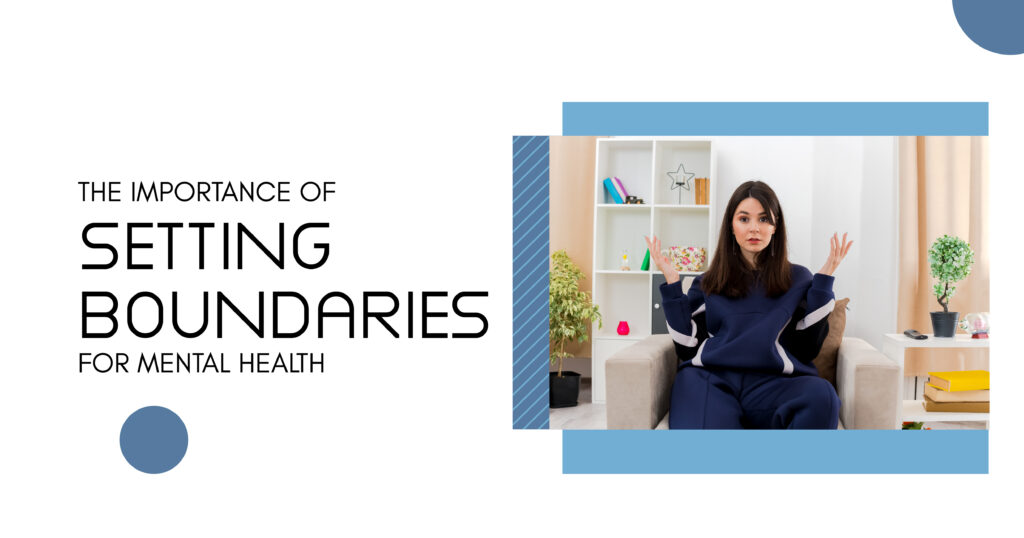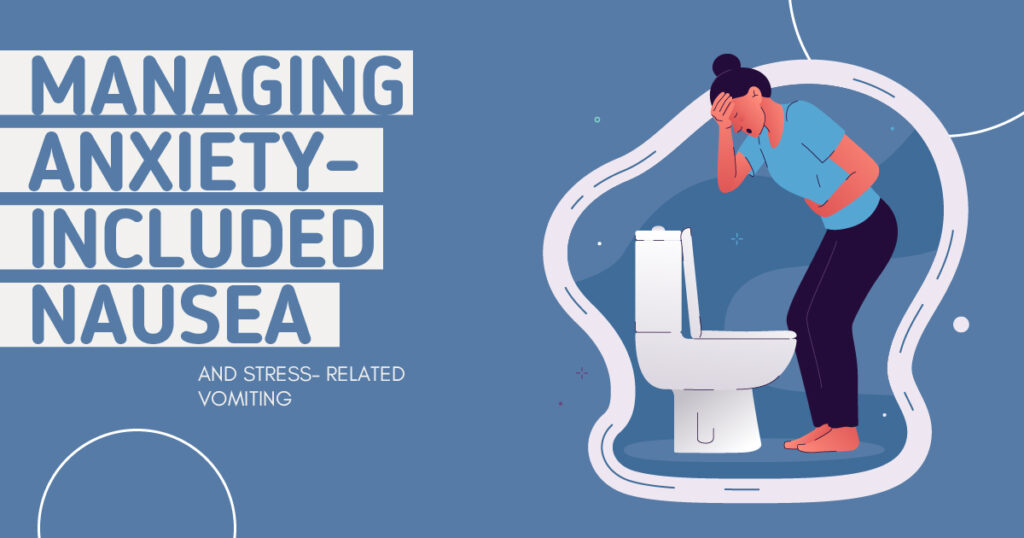Have you ever felt overwhelmed because you are doing a zillion things for others, or have you found it hard to say no? Perhaps work, family, or even friends, have given you too many responsibilities. Here is where the much-needed tool of setting limits comes in: setting healthy boundaries to look after one’s mental and emotional health and reduce stress and anxiety.
Essential Takeaways
- Boundaries are fundamental to protecting mental health. You may avoid burnout, lower the pressure, and improve your general well-being by setting some limits.
- Different types of boundaries. There are boundaries, such as physical, emotional, mental, and work-related ones, and each one has a distinct purpose for maintaining the balance of life.
- Setting boundaries is a way of taking care of oneself. Even though one may feel uncomfortable initially, having healthy boundaries set and maintained reflects respect for time, energy, and emotional well-being.
This article explores why boundaries are important for mental health, the various types of boundaries, and some practical tips on establishing them in your daily life, depending on whether you are dealing with work-life balance issues or are just suffering from emotional burnout.
San Diego Mental Health
What Are Boundaries, and Why Do They Matter?
Boundaries are guidelines we set for ourselves and others to define the boundaries of our time and the energy we’re willing to give. They tell people how we wish to be treated, where our boundaries are, what forms of behavior are negotiable in our relationship, and what isn’t, just to name a few. If boundaries are not established or communicated, it’s easy to lose track of what one needs for oneself and can become overwhelmed with all external demands.
Importance of Boundaries
Setting boundaries ensures mental sanity by making us feel in control of how we deal with the world. Without strict boundaries, people experience stress, anxiety, and even sometimes resentment. Boundaries do the following for us:
- Protect our emotional and physical energy
- Maintain a sense of self-respect
- Reduce burnout and overwhelming feelings
- Nurture healthier relationships
- It can give us more control in life
Boundaries help us maintain our mental well-being by locking out the bad forces within and around us that may have evil intentions.
Types of Boundaries
Not all types are created equal. Depending on the situation, you may need to set different boundaries. Here’s a breakdown in some of the key categories:
- Physical Boundaries
Physical boundaries refer to your personal space and physical needs. These determine who may touch you, how close someone can stand or sit to you, and what you feel comfortable doing in your environment.
For instance, Knowing how much physical touch you’re comfortable with in a relationship. Setting limits regarding personal space in the workplace or at social functions. Knowing when you need to sleep or to attend to your physical body.
- Emotional Boundaries
Emotional boundaries help safeguard emotions and prevent emotional depletion. They also help you decide how much emotional energy to use and what to share with others.
Examples include: Don’t allow someone else’s emotions or problems to fall on you. You decide who to keep some personal affairs from, especially if it is people you do not trust. Protect yourself against toxic behaviors such as manipulation and criticism.
- Time Boundaries
Controlling how you allocate your time and knowing when to focus on self-care. These boundaries are essential in today’s fast-paced world, where everyone says yes to requests.
Time boundaries encompass the following: The amount of time dedicated to rest, hobbies, and self-care. Number of hours one spends working after work. Declining social event attendance when you have the need to get some rest or are too busy.

- Mental Boundaries
Mental Boundaries Mural refers to your thoughts, opinions, and beliefs. Having mental boundaries means you respect that your thoughts belong to you and that other people should be left alone. You shouldn’t take other people’s ideas if they don’t match yours.
For example, defending one’s opinion in debate, protecting mental space by minimal exposure to negative news and conversation, and controlling mindfulness to focus on thoughts and emotions.
- Material Boundaries
Material boundaries concern what’s yours: the goods, services, and money, among others. This kind of boundary gives you the power to decide how to let others access your physical or monetary goods.
For example: Decide if you would lend a family member or friend something. Setting limits on how much financing support you can provide people. Guarding personal property from unauthorized use or abuse.
- Work Boundaries
Work boundaries prevent burnout; professional responsibilities cannot drown out your personal life. They are also a means of maintaining well-being within the workplace and in helping, limit your employer, colleagues, or even you;
Examples include: You don’t answer work emails or calls after certain times. You take regular breaks to avoid getting burnt out. You communicate with your boss as regards the volume of work.
The Role of Boundaries in Mental Health
Without boundaries, we fall easy prey to different distressing mental states. If we constantly say yes to everything, then over time, we tend to be overwhelmed, which gives the feelings of stress, anxiety, and even depression. One way healthy boundaries can be utilized in self-care is by providing for oneself rather than overburdening oneself with other people’s needs.
Reduced Stress and Anxiety
The short-term benefit of this sort of behavior is lowered stress. If one sets boundaries, one does not feel compelled to stretch oneself too thin. This also reduces anxiety and mental overload. Using the example again, setting a work boundary around availability outside of working hours will lower the stress associated with being “on call.”
Self-Esteem
Boundaries play a huge part in how we perceive ourselves. We feel a greater sense of worth when we respect and tell people about our limits. On the other hand, as we make it easy for others to cross our boundaries, we end up with low self-esteem or simply inadequacy. Healthy boundary setting reminds us that time, energy, and our well-being are valuable.
Healthy Relationships
Boundaries will define, shape, and maintain healthy relationships. A couple cannot be healthy by not having boundaries. The relationships become very one-sided, and the person on the giving end becomes uncomfortable with all that they are giving. Boundary setting allows for mutual respect and understanding and deepens relationships over time. For example, setting boundaries in communication is where you prevent misunderstandings that lead to reduced conflict in relationships.
San Diego Mental Health
Need of Boundaries
The art of knowing when to say no is empathetic because you may never have clear boundaries set for you before, so you find yourself saying yes to things that you know you should say no to. This can only be fixed by tuning in to your emotions and acknowledging when certain situations or interactions make you feel uncomfortable, overwhelmed, and even resentful.

Signs You Need Boundaries
- You feel overwhelmed by responsibilities that aren’t yours.
- You can’t say no, even if you’re utterly exhausted.
- You are constantly feeling guilty for prioritizing your own needs.
- You resent people for taking your time or even your energy.
- You give up your mental and emotional well-being for what others want.
If any of these apply to you, now is probably a good time to begin establishing boundaries in your life.
The Benefits of Setting Boundaries
Boundaries are not just a protection for your mental health but can also benefit you. The more permission you grant yourself to focus on your well-being, the farther out the ripples flow into other areas of your life.
Increased Self-Esteem
You are training others on how to treat you; however, it also sends a message to the self about self-worth. Every time you set up a boundary, you remind your psyche that you deserve respect and care. That in itself builds more confidence and self-esteem.
Lesser Burnout and Stress
Overcommitting and allowing everyone to dictate your activities leaves one vulnerable to burnout. Because you have discretion over how much you give, establishing boundaries is the way to prevent exhaustion. Be it at work or within friendships and family settings, boundaries allow for room for one to breathe and recharge.
Good Relations
Most people have this notion that setting boundaries drives people away. Not that, really; instead, it strengthens the relationship. When both parties know and respect each other’s limits, the likelihood of misunderstandings or resentment will decrease significantly. Healthy boundaries also allow room for the fostering of trust and open communication.
Steps to Start Setting Boundaries
It can be frightening to set boundaries when you’ve never done so. But keep in mind that you start small and work your way up. It’s a way of building confidence in what you need to say.
- Define Your Limits
Start by reflecting on what makes you uncomfortable, stressed, or overwhelmed. Once you discover your limits, you should have a clearer idea of where to place them. For example, if you happen to feel tired afterward every time you go to parties, you would require boundaries on the number of social activities you say yes to.
- Start Small
You don’t have to transform your whole life overnight. Begin by setting small boundaries in low-risk areas. For example, you can practice saying no to small requests or taking a break for 10 minutes as needed. Those small wins will build your courage, and you can set bigger boundaries in higher-stakes areas of life.
- Clear Communication
Only effective boundaries will be effective if communicated. Inform others of your limits calmly and respectfully. For instance, instead of saying, “I’m too busy,” say, “I have to recharge a little bit, so I really cannot contribute to this project.” Practicing Assertiveness
- Being assertive is not being aggressive
One good definition of assertiveness is standing up for your own needs without stepping over other people’s boundaries or hurting them. In drawing lines, practice speaking calmly and confidently without apologizing or feeling guilty.
- Be Prepared for Pushback
You must realize that you cannot expect everyone to respect your boundaries immediately. Other people might challenge or provoke you at first. Be firm and consistent with your boundaries, even when it initially feels uncomfortable. Gradually, different people will learn that your limits must be respected.
Common Challenges and How to Overcome Them
It can present its own challenges in that it forces you to define and assert your needs. Here are some common obstacles to the process and how to navigate them:

- Guilt
It is commonplace to feel guilty when you first start placing boundaries, especially if you’re a people-pleaser. You should remind yourself that setting boundaries isn’t selfish; it’s a form of self-care. You deserve to take care of your mental health.
- Fear of Rejection
You might be apprehensive about being rejected or even abandoned by others due to being too boundaries. Healthily, relationships are built on respect. The ones who truly care for you will respect and understand your need for boundaries.
- Difficulty in Saying No
Being a people pleaser may not be like the feeling of saying no, or may not even know how to say no. Find a low-stakes way to practice this skill, like saying no to a small request of a friend or colleague, and remind yourself it is okay to place yourself first.
- Lack of Support
However, people around you may not understand why you are setting boundaries. If you do not have this support system, consider contacting a therapist or counselor who can give you just what you need – a walkthrough and emotional support.
San Diego Mental Health
FAQs
- Why do I feel guilty when I set boundaries?
You feel guilty most of the time, especially if you’ve never thought of your needs first. This is because in most cases, putting up with those you love is seen as selfish, but it’s actually more than that. The reason for this guilt is mostly the idea that self-protection may be greedy, but that isn’t the case. The mental aspect of self-protection is a delicious part of self-care.
- How do I set boundaries on family members without causing problems?
Setting boundaries can be challenging because of the family dynamic, but clear communication is key. Have an open, honest, and clear conversation about how the boundary will help your well-being, using something like, “I need some space to recharge, so I can be more present when we spend time together.”
- Does set boundaries harm relationships?
The more boundaries we set, the better our relationships are in the long term. Even though the initial discomfort may be visible initially, healthy boundaries foster mutual respect and open communication, which are vital components of good relationships.
- What if someone refuses to respect my boundaries?
If someone continually disrespects you and your boundaries, it may be time to rework the relationship. Consider scaling back your connection with people who cannot respect your boundaries, as they could be bringing unnecessary stress or toxicity into your life.
- Can my boundaries change over time?
Absolutely! Boundaries are not absolute; they shift from person to person according to your requirements. As you mature and your conditions change, it’s perfectly normal to create new ones or modify those set long ago.








